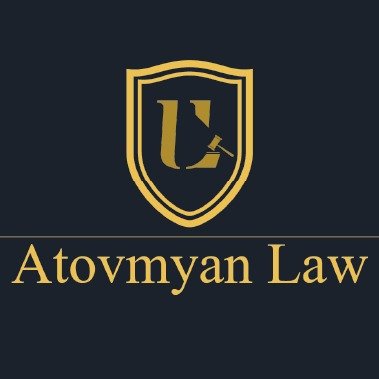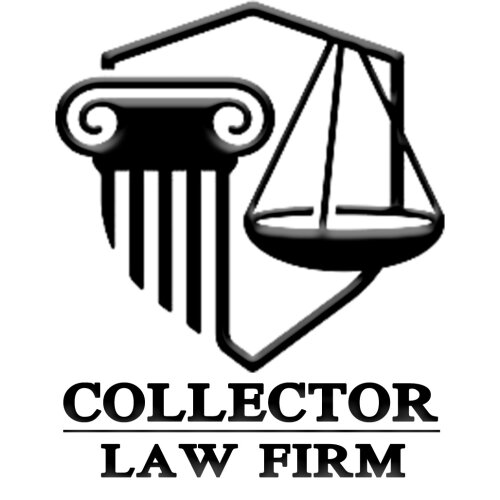Best International Trade Law Lawyers in Armenia
Share your needs with us, get contacted by law firms.
Free. Takes 2 min.
Or refine your search by selecting a city:
List of the best lawyers in Armenia
About International Trade Law in Armenia
International Trade Law in Armenia governs the legal rules, agreements, and practices that domestic and foreign entities must follow when engaging in international trade activities. This legal field encompasses a variety of components such as import and export regulations, customs laws, trade agreements, and international investment standards. Armenia, as a member of the World Trade Organization (WTO), aligns its national trade laws with international standards to facilitate seamless and fair trade practices. Additionally, Armenia has been proactive in establishing various bilateral and multilateral trade agreements to enhance its economic relationships with other countries.
Why You May Need a Lawyer
Engaging a lawyer specializing in International Trade Law in Armenia can be critical in various situations. Companies might require legal assistance for compliance with local and international trade regulations, negotiation and drafting of trade contracts, or resolution of trade disputes. Individuals or businesses may also seek legal expertise to navigate customs clearance processes or to manage issues related to trade tariffs and anti-dumping regulations. Furthermore, legal counsel can be invaluable when dealing with breach of international agreements or in cases where international sanctions impact trade activities.
Local Laws Overview
Armenia’s trade legal framework is governed by several key laws and regulations. The Customs Code of Armenia outlines the procedures and regulations for the import and export of goods. Law on Foreign Investments promotes and protects foreign investments in the country, ensuring non-discriminatory treatment. The country also adheres to the WTO rules, which influence its trade policy decisions. Domestic legislation related to anti-dumping and countervailing measures ensures that local industries are protected from unfair trade practices. Additionally, Armenia has implemented a series of trade agreements with countries around the world to enhance cross-border trade and investment opportunities.
Frequently Asked Questions
What is International Trade Law?
International Trade Law involves regulations and agreements that govern how countries conduct trade with each other, including tariffs, trade agreements, and dispute resolution mechanisms.
Why is Armenia a member of the WTO?
Armenia joined the WTO to integrate into the global trading system, benefit from non-discriminatory access to international markets, and participate in creating fair and equitable trade rules.
What are some key trade agreements Armenia is part of?
Armenia is part of the Eurasian Economic Union, which facilitates free movement of goods and services among member states, and it has various bilateral agreements with countries in Europe and Asia.
How do trade tariffs affect businesses in Armenia?
Trade tariffs impact the cost of importing and exporting goods, which can affect a business's profitability and competitiveness in international markets.
Can a lawyer help with customs issues?
Yes, a lawyer can provide guidance on customs procedures, help ensure compliance with customs regulations, and represent businesses in customs disputes.
What is the role of anti-dumping measures?
Anti-dumping measures are used to protect domestic industries from foreign companies selling goods at unfairly low prices, thereby ensuring a level playing field.
How can businesses ensure compliance with trade laws?
Businesses can ensure compliance by consulting with legal experts in international trade, staying informed about relevant regulations, and adopting robust compliance programs.
What is the significance of the Customs Code in Armenia?
The Customs Code is crucial for regulating import and export activities, setting out procedures for duties, and managing customs processes to facilitate efficient trade.
What are the penalties for violating trade laws in Armenia?
Penalties can include fines, revocation of trade privileges, and in severe cases, legal action, which can impact a business's ability to operate internationally.
How does trade dispute resolution work in Armenia?
Dispute resolution often involves negotiations, mediation, or arbitration, with legal representation recommending viable strategies to resolve issues amicably.
Additional Resources
Those seeking more information or assistance with International Trade Law in Armenia can reach out to the following resources:
- The Ministry of Economy of Armenia, which oversees trade policy and provides information on trade regulations.
- The State Revenue Committee for customs-related inquiries and guidance on import and export procedures.
- Armenian Chamber of Commerce, which offers resources and networking opportunities for businesses involved in international trade.
- Local law firms with expertise in international trade law and practice.
Next Steps
If you require legal assistance in dealing with international trade law matters in Armenia, consider the following steps:
- Assess your specific legal needs related to international trade.
- Research and contact law firms that specialize in international trade law within Armenia.
- Prepare relevant documents and information before consultations to ensure thorough and efficient legal advice.
- Stay informed about new developments in trade policies and regulations that might affect your business.
- Consider joining trade associations or networks for ongoing support and access to expert opinions.
Lawzana helps you find the best lawyers and law firms in Armenia through a curated and pre-screened list of qualified legal professionals. Our platform offers rankings and detailed profiles of attorneys and law firms, allowing you to compare based on practice areas, including International Trade Law, experience, and client feedback.
Each profile includes a description of the firm's areas of practice, client reviews, team members and partners, year of establishment, spoken languages, office locations, contact information, social media presence, and any published articles or resources. Most firms on our platform speak English and are experienced in both local and international legal matters.
Get a quote from top-rated law firms in Armenia — quickly, securely, and without unnecessary hassle.
Disclaimer:
The information provided on this page is for general informational purposes only and does not constitute legal advice. While we strive to ensure the accuracy and relevance of the content, legal information may change over time, and interpretations of the law can vary. You should always consult with a qualified legal professional for advice specific to your situation.
We disclaim all liability for actions taken or not taken based on the content of this page. If you believe any information is incorrect or outdated, please contact us, and we will review and update it where appropriate.
Browse international trade law law firms by city in Armenia
Refine your search by selecting a city.

















